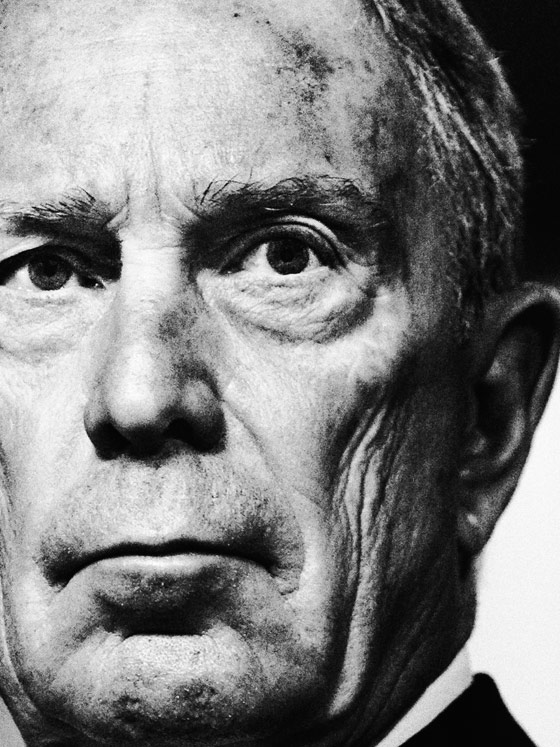New York's Mayor Michael Bloomberg's Next Act
/ New York mayor Michael Bloomberg (Image: Christopher Anderson)New York Magazine profiles Michael Bloomberg in-depth, as the New York major prepares for a new life out of political office. The centrist operating in a world where moderates almost have no place is determined that in his new role, money and expertise will constitute a “truly massive influence”.
New York mayor Michael Bloomberg (Image: Christopher Anderson)New York Magazine profiles Michael Bloomberg in-depth, as the New York major prepares for a new life out of political office. The centrist operating in a world where moderates almost have no place is determined that in his new role, money and expertise will constitute a “truly massive influence”.
Chicago mayor Rob Emmanuel — who is himself the beneficiary of a Bloomberg-financed swat team dedicated to streamlining city government bureaucracies — says of the mayor who knows best “He has passions on gun control, immigration, and climate change.”
We learn that Bloomberg was quietly offered a job as head of the World Bank, as Robert Zoellick prepared to step down. In March, a journalist asked the mayor:
“How likely is it that you’d buy the New York Times?”
“It’s not for sale,” Bloomberg shot back. “And why would I want to buy the Times?”
“You’re a philanthropist,” the editor said. Bloomberg smiled.
“You’re the first person who’s given me an honest answer to that.”
Given the financial problems that plague the New York Times (recently profiled on AOC and by New York Magazine), the idea of Bloomberg’s media empire buying the newspaper is appealing for readers who worry about the worst possibility of all: Rupert Murdoch buying the Times.
It’s a better business fit that Bloomberg buy London’s The Financial Times, especially given his international focus on cities.
Speaking of Murdoch, the article quotes the battered baron’s statement that Bloomberg told him — after playing golf with President Obama in 2010 at Martha’s Vineyard: “I never met in my life such an arrogant man.”
AOC doesn’t forget that Bloomberg stepped up to the plate in the midst of the Komen battle against Planned Parenthood, donating $250,000.
The most interesting insights in this Bloomberg profile piece is that the mayor runs against the clock, as do all that work for him.
Shortly after he began his second term, in January 2006, the mayor instructed his staff to install a digital clock on the wall above the kitchen in the bull pen at City Hall. The clock was visible from everywhere in the room, ticking off the days, hours, minutes, and seconds left until his term was up. The purpose of the countdown, as the mayor explained to aides, was motivational, part of the M.B.A. ethos that has defined the Bloomberg era. He wanted to make sure his team resisted the lame-duck malaise that can settle over second-term administrations. When he started the third term, he added stopwatches that timed meetings. Some advisers saw the clocks as revealing something deeper: They provided a constant reminder that the mayor would soon be exiting the public stage—a prospect that was deeply unsettling to a man with the ambitions of Michael Bloomberg.
The New York mayor is constantly criticized for supporting the idea of a nanny state. Most recently, New York moved to curb consumption of sugary soft drinks in containers larger than 16 ounces. The city seeks to bar restaurants, movie theaters, sports arenas, food carts and delis from promoting obesity in the city.
Ever the pragmatist, Bloomberg’s view is that New York is forced to spend billions of dollars a year on weight-related health problems. There is no doubt that the new laws will be challenged in court, wrote NPR this week.
With the right-wing determined to dash regulations the hamper free enterprise and pursuit of the American dream to drink as much Coke and other suger-saturated drinks as possible, Bloomberg’s billions may have a role to play in supporting his centrist vision of a free society trying to save itself from self-destruction.
Related Reading: Israel’s Women Take Palestinian Women to Beach | Bloomberg Gives $50 Million to Fight New Coal Plants